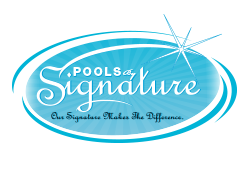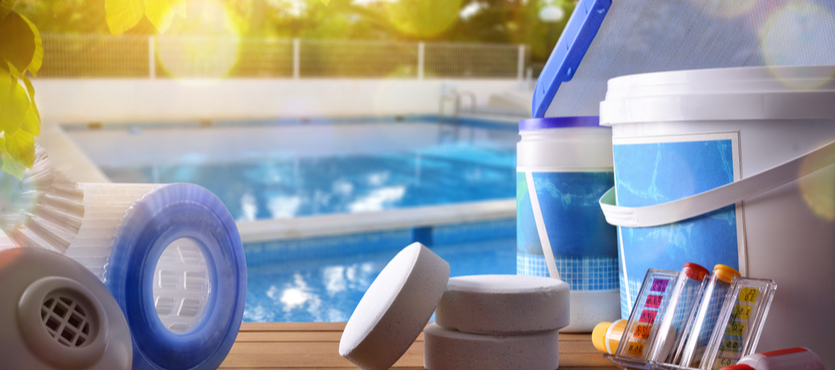There’s a fecal parasite in town causing an increase in disease outbreaks, and the CDC says swimming pools might be to blame. Luckily, you can keep enjoying your pool all summer long while avoiding getting sick from these nasty parasites.
The US Centers for Disease Control and Prevention (CDC) recently announced an increase in the number of illnesses they are seeing caused by a fecal parasite known to live in water. The parasite everyone is talking about is Cryptosporidium, crypto for short. People are at risk of becoming ill with Cryptosporidium if they are exposed to human or animal fecal matter.
Symptoms include cramps, diarrhea, and nausea and may persist for weeks at a time, in some cases leading to more serious issues related to malnutrition and dehydration.
Before you hit the panic button, know that cases of this illness are still relatively rare in the US. There were about 7,500 illnesses reported between 2009 and 2017 – 300 of which resulted in hospitalization, with one death.
In the US, over half of these instances were traced back to swimming pools, water playgrounds and additional water recreation parks and areas. It is very common for people to swallow water in these places, and that’s how the disease gets into your body.
Infection rates tend to spike in July and August, when more people are going in the pool to beat the heat.
So, What Can You Do to Prevent Your Pool from Becoming a Hot Spot for Bacteria?
Maintaining a clean pool is key to preventing an outbreak that originates in your swimming pool. Chlorine is trusted with killing most of the germs that float around swimming pools. In fact, chlorine has helped prevent wide-spread pool-borne illnesses since the 1920s.
It works because when chlorine is added to water it creates a weak acid known as hypochlorous acid. This acid is highly skilled at slaying bacteria like E. coli and salmonella, along with an assortment of other viruses.
The acid’s natural electrical charge is what makes it so powerful. The cell walls encasing bacteria contain a net negative charge that repels other negatively charged particles found in the water. Thanks to the fact that hypochlorous acid is neither negatively nor positively charged, it can breach the barrier and make contact with bacteria cells, invading and destroying them from there.
The hypochlorous acid causes complete chaos once it is inside of the bacterium, it interferes with proteins and forces them to lose their complex structures. As a result, their functionality is impacted, and the cell begins to die.
“Chlorine basically tears apart a germ, shredding its cell membrane and proteins,” said Michele Hlavsa, chief of the Centers for Disease Control and Prevention’s (CDC) Healthy Swimming Program.
Does Chlorine Kill Cryptosporidium?
While chlorine is excellent at getting rid of many different diseases and viruses, it is not very effective against Cryptosporidium and Giardia. Thanks to a strong protective outer shell, these two parasites are very tolerant of chlorine.
How to Prevent Cryptosporidium and Giardia from Invading Your Pool
- Have everyone rinse off before and after going in the pool
- Warn swimmers against ingesting pool water
- Make sure the chlorine levels on your pool are at adequate levels
The best way to prevent these nasty pathogens from getting in your pool is to keep kids and adults with diarrhea or illnesses out of the pool. In addition, have everyone shower off before getting into the pool as small traces of fecal matter can remain attached to the body and then enter the water.
In addition, have your pool cleaned on a weekly basis. Hiring a professional service to take care of this task will shave a lot of time off your to do list. Not to mention, as professional pool cleaners, we ensure all of your pool equipment is working properly and chemical levels are balanced and in check. To actively fight against contamination, the pH level of your pool must be within a certain range. According to the CDC, the chlorine concentration should be between one and three parts per million and the pH should remain between 7.2 and 7.8.
Learn more about or pool cleaning services in Broward County

